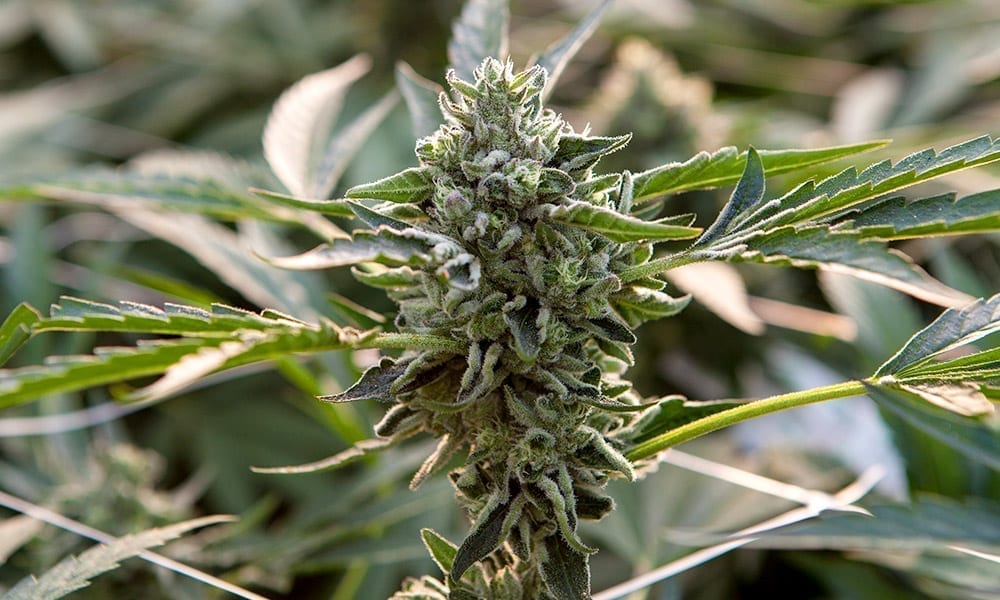Legal
Legalization Foe Claims Medical Marijuana Leads to Fentanyl
By
When states legalize medical marijuana, black-market cannabis tainted with the deadly opiate fentanyl appears, a leading marijuana legalization opponent told the Kentucky State Legislature earlier this month — a demonstrably false claim that has been repeatedly debunked.
Kevin A. Sabet, a social scientist who holds a PhD from Oxford University and who served as a policy adviser in the Office of National Drug Control Policy, is also co-founder and president of Smart Approaches to Marijuana (SAM), perhaps the country’s most prominent organization dedicated to opposing marijuana legalization. SAM (and Sabet) can generally be found whenever a medical marijuana or legalization ballot measure is before voters.
On Sept. 14, Sabet was in Frankfort, Kentucky, to give testimony at a committee meeting of the Kentucky General Assembly regarding medical marijuana.
Efforts to legalize medical marijuana in Kentucky reached an impasse earlier this year, but state Rep. James Nemes (R-Louisville) has vowed to introduce a similar bill next year.
If he does, and if it passes, Kentucky can expect to see marijuana tainted with the deadly opiate fentanyl, Sabet told lawmakers during his testimony.
During his lengthy presentation, Sabet presented a flowchart under the heading of “The Cycle of ‘Tax and Regulate.’” According to Sabet’s chart, when a state legalizes medical marijuana, the black market so undercuts a regulated, legal market that cannabis “adulterated” with additives like fentanyl appear.
“What happens when a state legalizes? We often see a cycle,” Sabet told the committee. “And I think it’s important to understand the cycle.”
“It starts with medical marijuana. It does give cover to the black market, especially if you have a lot of home growing,” he continued. “It increases supply, it lowers the price. The black market undercuts the legal price, so the black market is thriving in a lot of these states. We see adulterated products in a lot of these black market materials, like fentanyl and others.”
After the fentanyl, eventually, comes lobbyists and then finally recreational marijuana legalization, according to Sabet.
“It’s a cycle that we have seen in state, after state, after state,” he said.
Check for yourself. The segment begins at around the 49-minute mark.
Much of what Sabet said is mostly true. States that have legalized recreational cannabis, including California, Colorado, and Oregon, still see large black markets. And recreational and medical-marijuana laws have often been abused — or broken outright — as cover for the black market.
But it was not immediately clear what factual basis, if any, there is for Sabet’s fentanyl claim.
Smart Approaches to Marijuana did not respond to emails seeking comment from Cannabis Now, and Sabet — a frequent user of social media — did not respond to a tweet sent to his personal account.
Sabet’s claim that marijuana-policy reform leads to marijuana tainted with a deadly drug blamed for America’s drug overdose crisis went unchallenged by the lawmakers in the room.
However, it appears to have no basis in reality and, in fact, is demonstrably false.
In 2017, several reports — all from states where legal medical marijuana was not yet available — claiming that cannabis laced with fentanyl had been discovered were later found to have been based on faulty reporting, according to Snopes.
Earlier this year in Tennessee, the head of a state narcotics task force incorrectly told local media that his agency had discovered fentanyl-laced marijuana. That claim was retracted by an agency spokeswoman, who said it was made in error.
In their zeal to oppose marijuana legalization, Sabet and his organization are known for making outlandish and sometimes shameless statements.
In an op-ed published in the Detroit Free Press on the same day Hurricane Florence was bearing down on North Carolina, Sabet compared marijuana legalization to the deadly storm, which to date has killed at least 48 people.
But with the fentanyl fib, SAM may have sunk to its lowest low yet. Sabet made this at-best questionable claim in an extremely sensitive environment, where fentanyl is a well-known killer.
Drug overdoses in Kentucky increased by more than 11.5 percent last year, according to data released in July — with fentanyl being the chief cause.
Making this demonstrably false claim in a state that has been hit hard by opiate overdose deaths is either an unbelievably careless mistake — or a nakedly cynical move made to conflate the two drugs in order to sow confusion and fear.
Which is it? SAM won’t say.
Read more from the source: CannabisNow.com
Photo Gracie Malley for Cannabis Now


